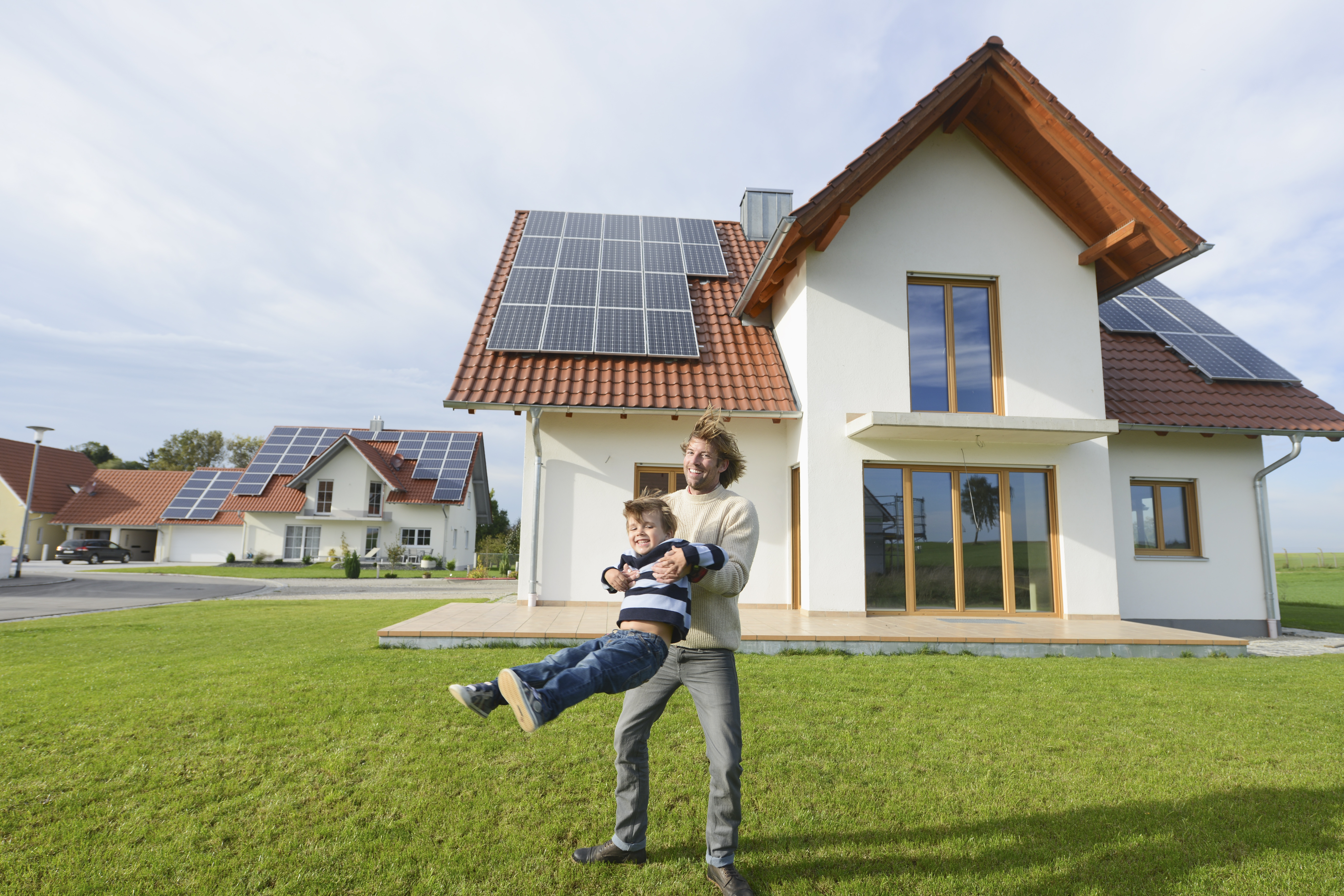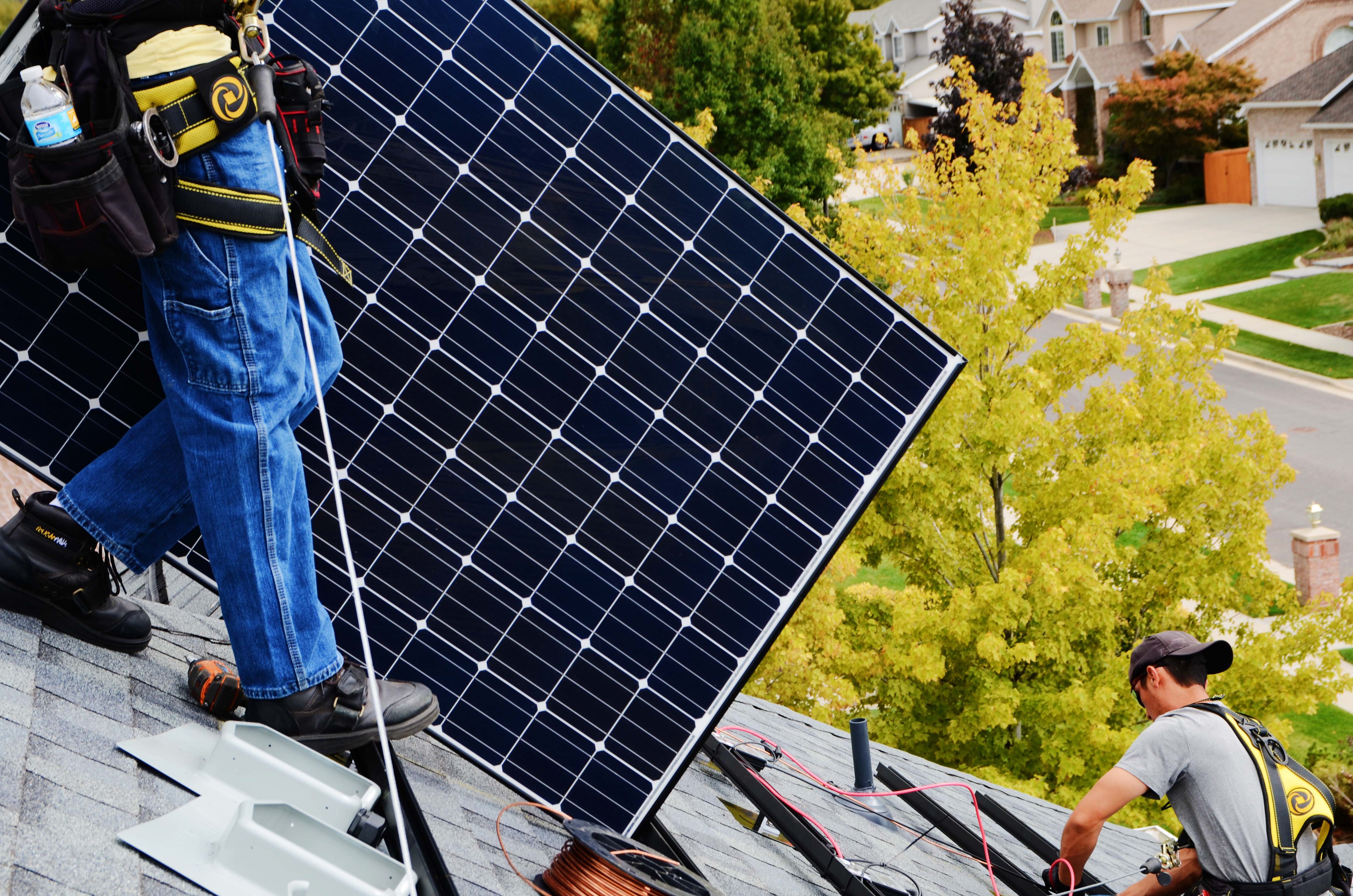There are many reasons to add solar panels to your home, from developing an environmentally friendly footprint to lowering energy costs. One of the most important aspects to consider financially may be the increase in your home’s property value.
According to research from Zillow, homes with solar panels sell for 4.1% more than the national average, adding approximately $9,274 to the cost of a median-priced home. The returns can be even higher in markets with premium home prices. In New York City, for example, solar panels added 5.4% to the sales price — or $23,989 to the average home.
Below are steps you can take as a homeowner to increase your home’s property value with solar panels.
Choose the best solar system for you
Solar panels are an important investment that can increase the property value of your home. The first step to take is choosing the right solar system for your needs. Often, homeowners evaluate the cost of systems and wonder what the difference is. For example, is the return on investment the same for cheap solar panels as for a cutting-edge system?
While some systems may be cheaper up front, they can end up having a higher total cost of ownership. Premium solar panels offer better efficiency, more power output, and warranties that protect your investment. End to end, it’s important to choose a system that’s designed to last — and continue delivering ROI throughout its lifecycle.
Back up your property value investment with the right warranty
Ensuring a long-term return on investment doesn’t stop with selecting the right solar panels. It is essential to choose a warranty that meets your needs. Solar systems typically come with two warranties. The first guarantees the equipment will operate for a set period without failure. Panasonic’s warranties are among the best in the industry, covering performance, workmanship, parts, and labor for 25 years.
The second type of warranty guarantees energy production, such as promising 90% production at 25 years. Again, consider your options when selecting panels. In other words, warranties protect the integrity of the solar panels themselves, as well as their capacity to generate energy consistently over the years.
Warranties are important for one reason: if issues occur with the equipment or production drops, repairs to the system are covered and won’t erode the returns you’ve generated from the investment. From a resale standpoint, warranties can help convince buyers that paying more for a home with solar power is a smart decision since future issues are covered.
Choose the right installer
Buying solar panels for your home can be a profitable investment in terms of property value. Once you’ve identified the right system and ensured that the warranty provides complete protection, it’s important to select the best solar installer. At a minimum, hire an experienced installation provider that’s insured, as well as familiar with your home type and the system you’ve selected. However, consider these other points as well:
- Is your installer a certified or recognized brand partner? If so, they have received additional training that helps secure your investment.
- If they’re part of a formal installation plan, does that add any additional benefits, warranties or offerings to your solar system?
- Does the installer offer their own warranty? Professional solar installation companies typically offer a workmanship warranty and may offer discounted pricing for future repairs for anything beyond the scope of warranties.
Outlining these facts can further assure potential buyers that they’re protected and that they’re investing in a solar solution that meets the industry’s highest standards.
Educate buyers on owned vs. leased systems
In many cases, prospective buyers want to purchase a home with solar, but they don’t understand all the nuances. The main difference between the two options is ownership. When you purchase a solar system, it becomes part of your home’s total assessed value. By contrast, leasing panels is essentially a rental agreement and the main benefit is energy cost savings. A leased system won’t improve your property value.
As the Daily Republic notes, leased systems can cause big headaches during a sale. If a seller has a solar lease agreement in place, they’ll either have to pay off the system in full at the house sale closing or find a buyer who can apply to take over the payments. Many home buyers aren’t interested in taking on another payment in addition to a new mortgage. Purchasing your solar panels adds to your home’s value and simplifies the process of selling your property.
Explore long-term ownership as part of the sale
Increasing your property value by installing solar panels requires a strategy. Consider how real estate agents often sell homes: they identify key features likely to appeal to buyers and then stage the home to highlight those benefits. They’ll also feature those benefits prominently in home descriptions, photos, virtual tours, and onsite home showings. How can you include information about your solar system?
- Work with your real estate agent to ensure the solar system is highlighted in all marketing materials. Buyers may be willing to pay an additional $15,000 for a solar-powered home. Appeal to environmentally conscious buyers with clear branding.
- Create a one-sheet outlining the pertinent facts: system quality, warranties, any premium installation or workmanship warranties and prospective cost savings. You need to help prospective buyers understand the value of your solar system.
- Finally, don’t forget to remind them about the potential increase to the resale value they’re likely to see in the future.
Solar panels increase property value
Solar panels make strong financial sense. For homeowners, an increased home resale value can be one of the biggest rewards. By making smart decisions along the way and understanding how to discuss the system’s value with your real estate agent and potential buyers, you will lay the foundation for a strong future return on investment on your property value.






